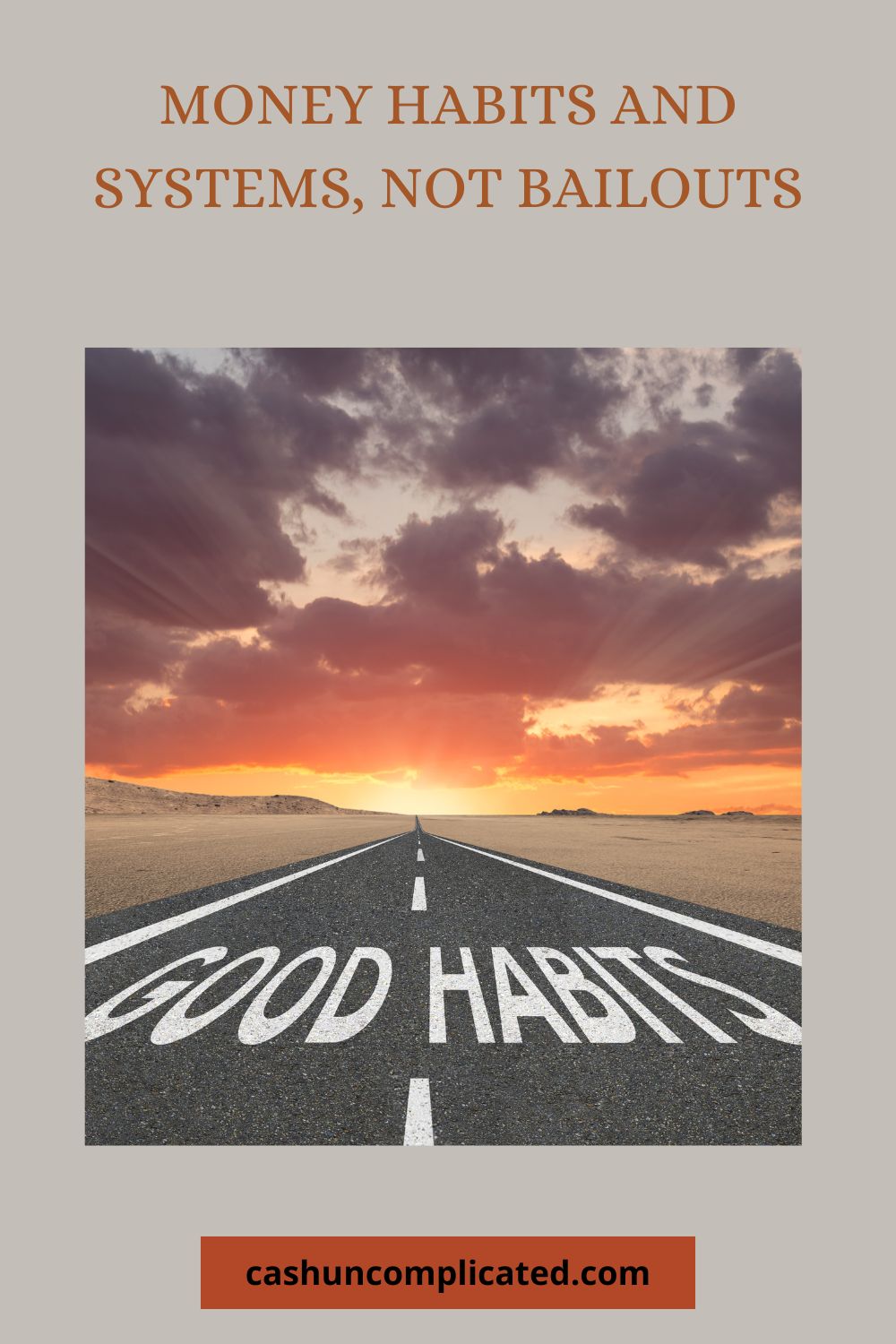Improving your money habits and systems is the best way to get ahead financially. Set up systems and follow them on a predictable basis. Sounds simple, but simple wins.
Best Way to Win With Money
I believe there are lots of ways to win with money, and I’ve seen it done in different ways. By far and away the most financially successful people have systems that they follow.
The systems can vary, but at the core of it there is a system. Even if the system isn’t perfect, following it leads to success more often than not.
For example, someone paying off consumer debt might pay off the mathematically incorrect debt first but if they have a payoff system, they are going to win the battle against debt.
Related: Debt Snowball, Debt Avalanche, or Hybrid Method–Which Should You Choose
Bailouts
When I refer to bailouts, I’m not referring to a government bailout. I’m writing about a personal bailout like doing a cash out refinance and using the money to pay off credit card debt.
Or taking out a personal loan to pay off higher interest rate debt. Feels good at the time, and it’s mathematically correct. Problem is you’re not feeling the pain of going through the process. The process is what teaches us to create better habits and systems and to never get back into that situation again.
Bailouts deprive you of that experience. They feel like the right move at the time but can ultimately be very bad for you. There’s also a momentary sense of relief but again, that deprives you of the process of having to go through it.
Old Habits Die Hard
A big part of setting up systems and creating new habits is to extinguish old habits. So you get a couple wins with one decision—the win of eliminating something bad like consumer debt and setting up new systems to avoid the bad thing again.
For example, someone in $5,000 worth of consumer debt who follows the debt snowball and eliminates each debt one at a time. This person is going through the pain of the process and they are unlikely to repeat the mistake of getting into consumer debt.
While someone who does a cash out refinance to pay off the debt hasn’t learned anything. They’ll have the consumer debt paid off instantaneously but then they’re left with the increased mortgage debt.
Plus they may not have the option to refinance again if they fall back into the old habits.
Sustainability
Winning with money is all about sustainability. Whatever plan you have has to be able to work long term. Otherwise it’s just a crash diet.
For example, taking out a personal loan to pay off high interest credit card debt feels great at the time because you’re paying off the card but you are still left with the personal loan. That move was just a short term plan to cut down the interest rate.
Making a plan to then pay off the personal loan is sustainable, but getting the personal loan itself is just a short term thing.
Conclusion
Bailouts and what appear to be easy wins are just short term band aids. There’s no future in them.
A real sustainable plan that includes habits and systems is the most effective way to financial success. So as you’re making financial choices, ask yourself the question: is this sustainable or a short term bailout?






